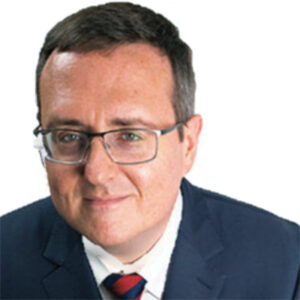About the Webinar
Probabilistic Damage Tolerance (PDT) provides a methodology to evaluate the structural integrity of metallic components of higher criticality under fatigue. In a PDT assessment, the defect-distribution drives the fracture risk of the AM part due to crack growth under cyclic loading. The PDT methodology may support Additively Manufactured (AM) processes that produce good quality material that is not necessarily defect-free. This webinar will discuss the ongoing adaptation of established zone-based PDT methods and software for safety-critical AM applications. These PDT methods explicitly address the potential size and frequency of material defects remaining in the part when it enters service. We will address alternative analysis strategies, challenges for software tools, and supporting materials data. We will also discuss recent efforts to exercise the PDT framework on AM parts to demonstrate the methodology, to document the procedure, and to determine areas for future improvement. This effort demonstrates the potential of the PDT methodology as a viable method to show the structural integrity of AM parts.
Registration Fee: $49.00 USD
Learning Objectives
- Basic concepts of PDT and how PDT differs from other methods
- Why PDT is a good candidate method for AM metallic components
- Data needed to support a PDT assessment
- Software tools that can support PDT assessments
Who Should Attend
Manufacturing Engineers, Research Engineers, AM Process Engineers
Instructor
Dr. James Sobotka employs techniques and insights from computational mechanics to improve methods that support structural integrity decisions. As a lead engineer at Southwest Research Institute (SwRI), Dr. Sobotka focuses on method development of NASGRO®, concept development of DARWIN®, additive manufacturing process modeling, advanced manufacturing, and development of exotic metal plasticity and damage models. This work includes design of tools to support probabilistic fracture mechanics for additive manufacturing; development, implementation, verification, calibration, and validation of novel computational material models; Python script development with Abaqus; finite element modeling to support stress-intensity factor calculations; utilization of contact mechanics algorithms for linear-elastic problems; computational topology for large 3D models; life debit models for porous metals; component optimization for mechanical testing; and development of additive manufacturing process models to predict thermal histories, residual stress, and microstructural evolution models.
Dr. Sobotka graduated from the University of Illinois at Urbana-Champaign in 2010 through the Structural Mechanics and Engineering Program in the Department of Civil and Environmental Engineering. Dr. Sobotka spent 16 months as a senior engineer at Bettis Atomic Lab before joining SwRI. Dr. Sobotka is the author of various technical papers on a variety of subjects. He regularly presents at technical conferences, including the TMS annual conference, ASME V&V, ASIP, AA&S, and ICAF. He has organized technical sessions at ASME IMECE and will be organizing sessions at the International Congress on Fracture 2023 and the Internal Conference on Advanced Manufacturing 2023. He is a member of ASTM and TMS. He has been a panelist at the United States National Congress on Computational Mechanics and at America Makes.



